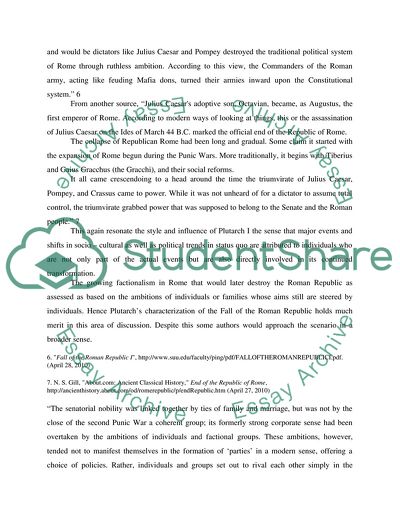Cite this document
(“Plutarch - Fall of the Roman Republic Research Paper”, n.d.)
Plutarch - Fall of the Roman Republic Research Paper. Retrieved from https://studentshare.org/history/1736855-plutarch-fall-of-the-roman-repbulic
Plutarch - Fall of the Roman Republic Research Paper. Retrieved from https://studentshare.org/history/1736855-plutarch-fall-of-the-roman-repbulic
(Plutarch - Fall of the Roman Republic Research Paper)
Plutarch - Fall of the Roman Republic Research Paper. https://studentshare.org/history/1736855-plutarch-fall-of-the-roman-repbulic.
Plutarch - Fall of the Roman Republic Research Paper. https://studentshare.org/history/1736855-plutarch-fall-of-the-roman-repbulic.
“Plutarch - Fall of the Roman Republic Research Paper”, n.d. https://studentshare.org/history/1736855-plutarch-fall-of-the-roman-repbulic.


